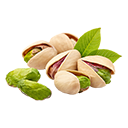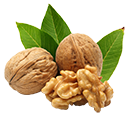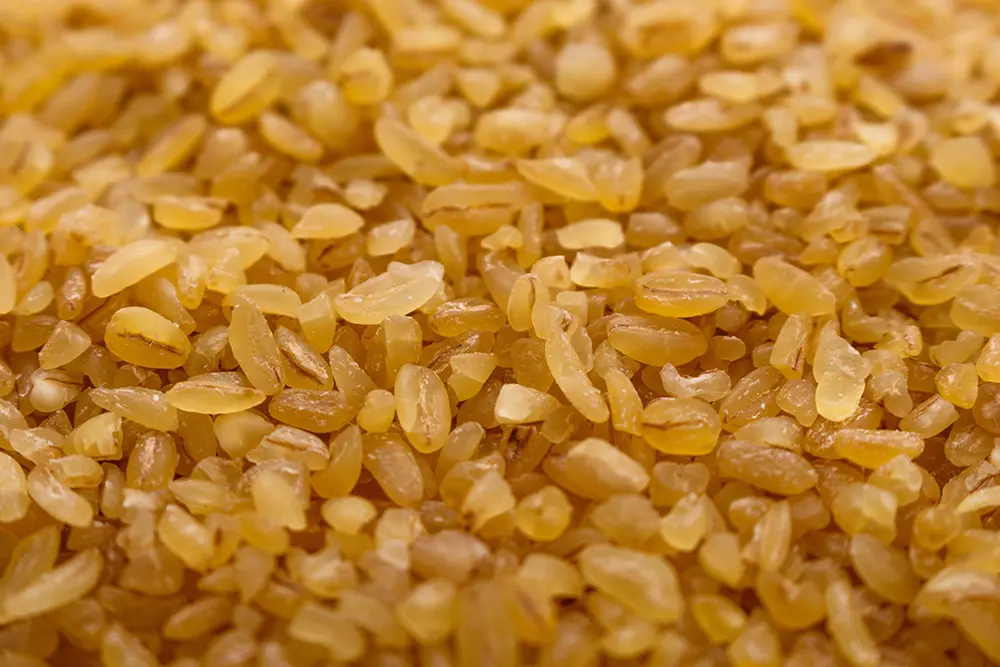The USDA provides the following nutrition information for 1/2 ounce (14g) of dark, seedless raisins. A half-ounce is the equivalent of one miniature box.
|
Calories |
42cal |
|
Fat |
0 |
|
Sodium |
3.6mg |
|
Carbohydrates |
11g |
|
Fiber |
0.6g |
|
Sugars |
9.1g |
|
Protein |
0.5g |
Carbs
Raisins have 11 grams of carbs per half-ounce (14g), compared to fresh American-type grapes, which have about 2.5 carbs in a similar serving size of 6 grapes (14.4g). Grapes, depending on the variety, have fewer calories than raisins, but also less fiber. The carb, calorie, and fiber counts in golden raisins are similar to dark raisins. Raisins with seeds provide more fiber, with similar amounts of carbs and calories.
While raisins are high in carbohydrates, their sugar is mostly fructose, which has a lower glycemic index. The glycemic index is a ranking of how much a food would raise your blood sugar compared with pure glucose, which has a ranking of 100. The actual amount any food raises your blood sugar has to do with how glycemic it is, how much of it you eat, and what else you eat with it. The glycemic load attempts to combine these concepts, and some diets use the glycemic load for this reason.
Depending on where you look, the glycemic index of raisins is in the low to moderate range. Keep in mind that glycemic index is a complex topic and individuals can have varying responses to foods. Eating too many raisins can result in a large blood sugar rise in people with diabetes because raisins have a significant amount of carbohydrates per serving.
Fats
Raisins have a negligible amount of unsaturated fat.
Protein
With just under 1 gram of protein per 1-ounce serving, raisins are not a good source of protein.
Vitamins and Minerals
An ounce of raisins provides 4% of your daily needs for potassium. Raisins also contain iron, vitamin B6, vitamin C, magnesium, and calcium.
Although grapes lose some of their nutrients during the drying process, raisins are still a good source of antioxidant chemicals, including polyphenols and phenolic acids, as well as fiber.
Associated With Better Overall Diet
A study of data from the 2001-2012 National Health and Nutrition Examination Survey showed that those who consumed raisins had a higher quality diet overall. They ate more fresh fruits, vegetables, and whole grains than those who didn’t eat raisins. The raisin eaters also had lower body weight, lower body mass index (BMI), a lower waist circumference, and were 39% less likely to be obese or overweight and had 54% less risk of metabolic syndrome than those who didn’t eat raisins.
Lowers Heart Disease Risk
Eating raisins has also been shown to potentially lower your risk for heart disease.
Supports Gut Microbiome
The dietary fiber found in raisins is both soluble and insoluble, and includes prebiotics, such as inulin. These prebiotics help support the growth of “good” bacteria in the gut, which can help lower cholesterol, improve metabolism, and immune system function.
Provides Quick Energy
Endurance athletes need fuel in the form of carbohydrates during long training sessions and races. Many turn to sports chews and gels, but raisins can work just as well. One small study showed they were as effective as special sports jelly beans in improving athletic performance during moderate to high-intensity exercise.
Improves Dental Health
Some of the nutrients in raisins, including oleanolic acid, linoleic acid, and linolenic acid, have antimicrobial properties that can fight the bacteria that cause dental problems, such as cavities and gum disease.
Like other dried fruits, raisins are shelf-stable, which makes them easier to store and transport than some other fresh fruits that require refrigeration. You can keep them in an airtight container in a cool, dark place for about a month. After that, they will last longer if stored in the refrigerator.
ويتم تجفيف هذا النوع بإضافة الكبريت وهذه العملية تجعل لون الزبيب أصفر.

 الفستق
الفستق اللوز
اللوز الجوز
الجوز البرباريس
البرباريس الزبيب
الزبيب الزعفران
الزعفران التين المجفف
التين المجفف تمر كالوت
تمر كالوت تمر بياروم
تمر بياروم تمر زاهدي
تمر زاهدي تمر مزافاتي
تمر مزافاتي تمر استاميران
تمر استاميران تمر الرابي
تمر الرابي